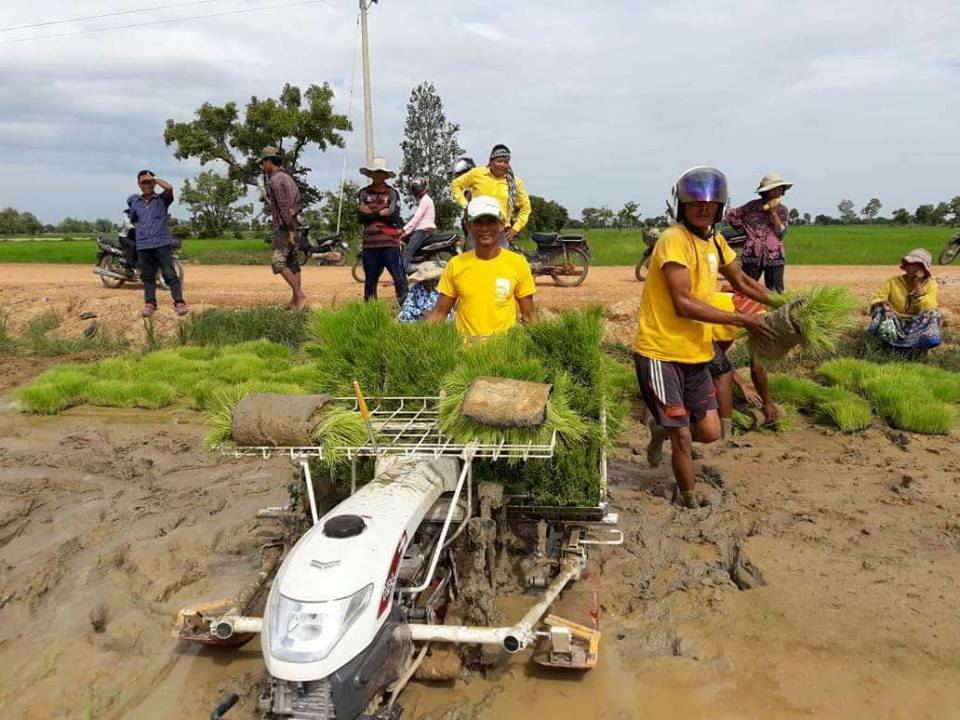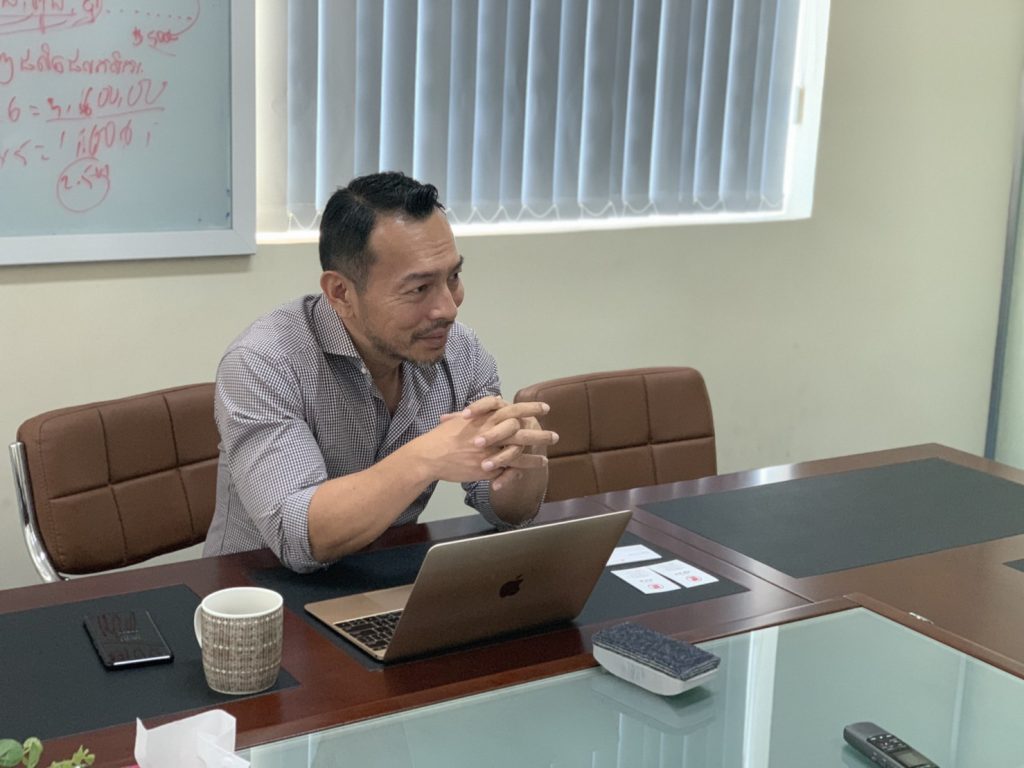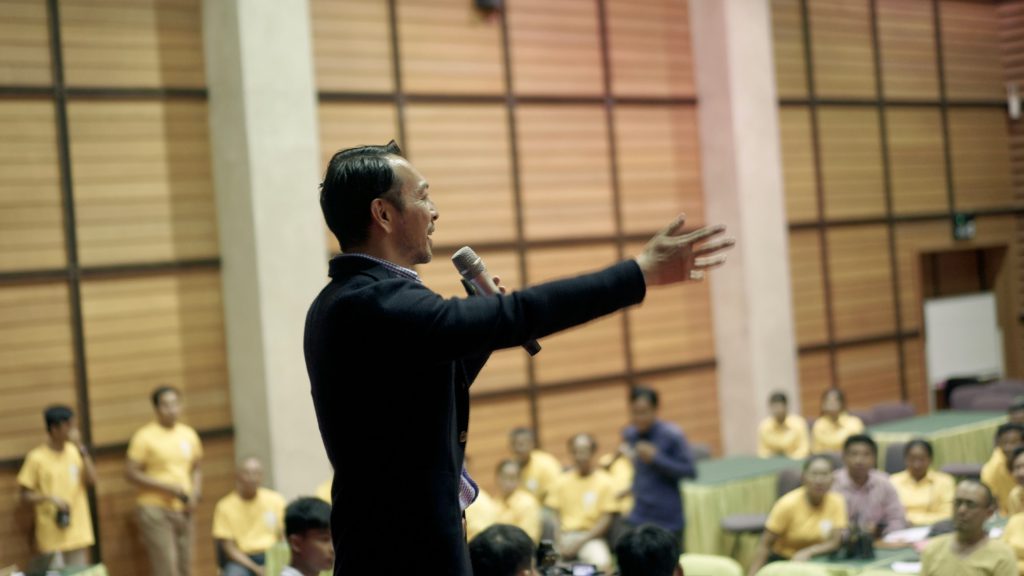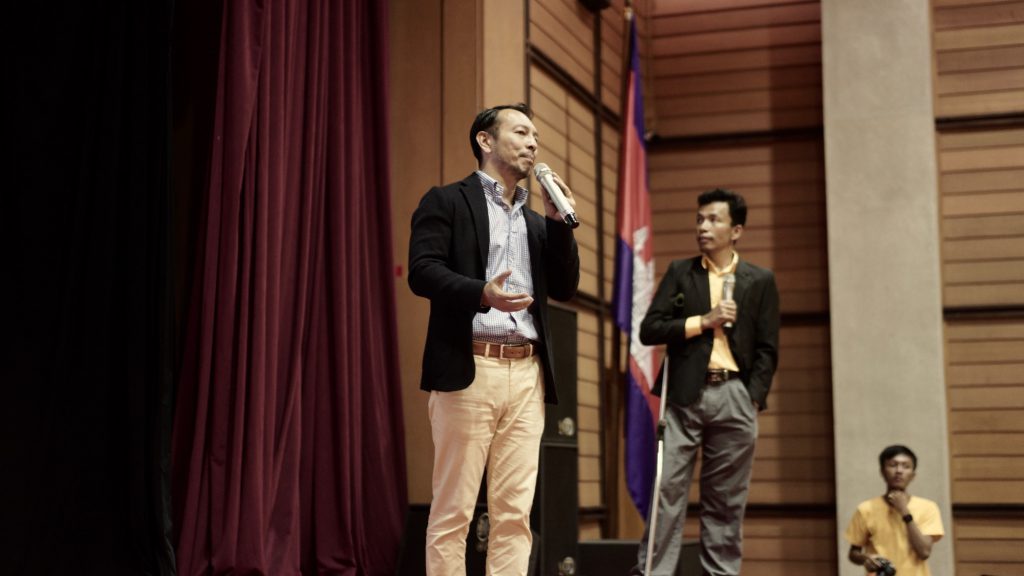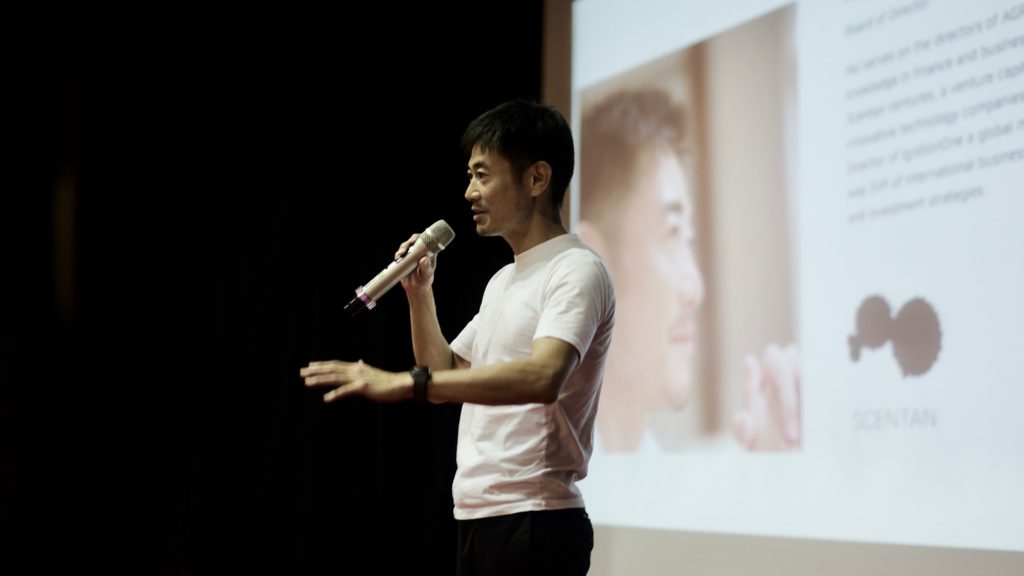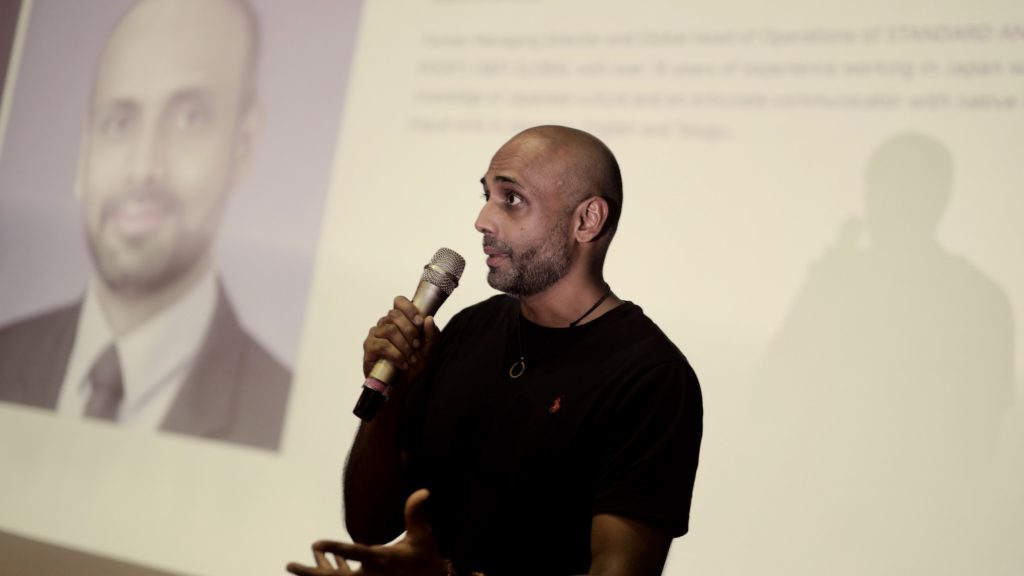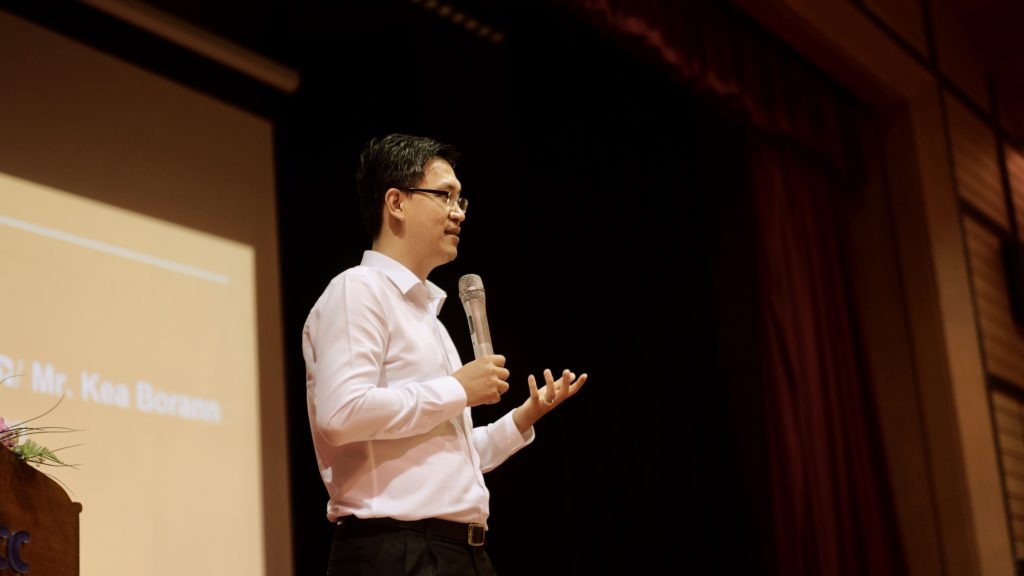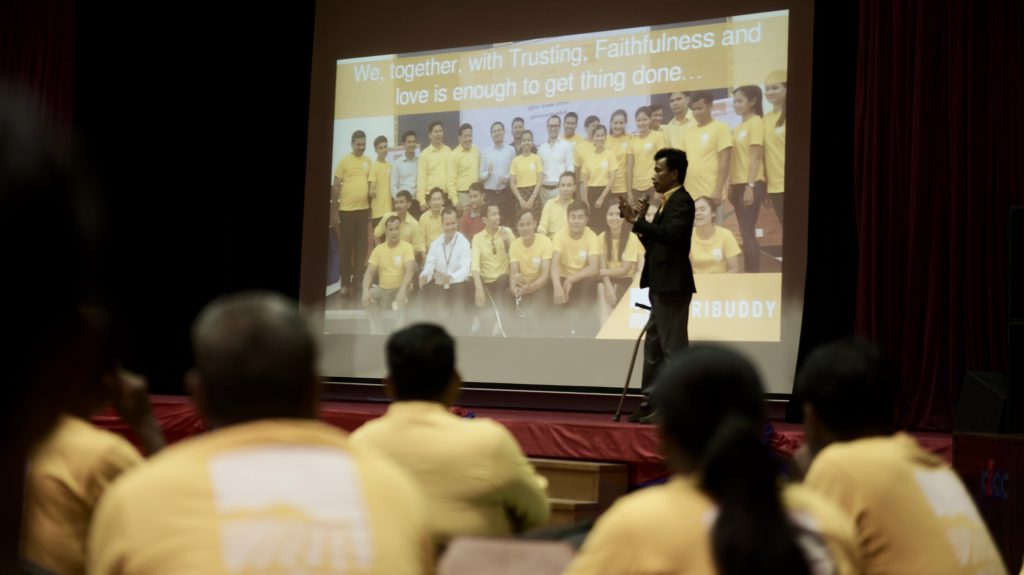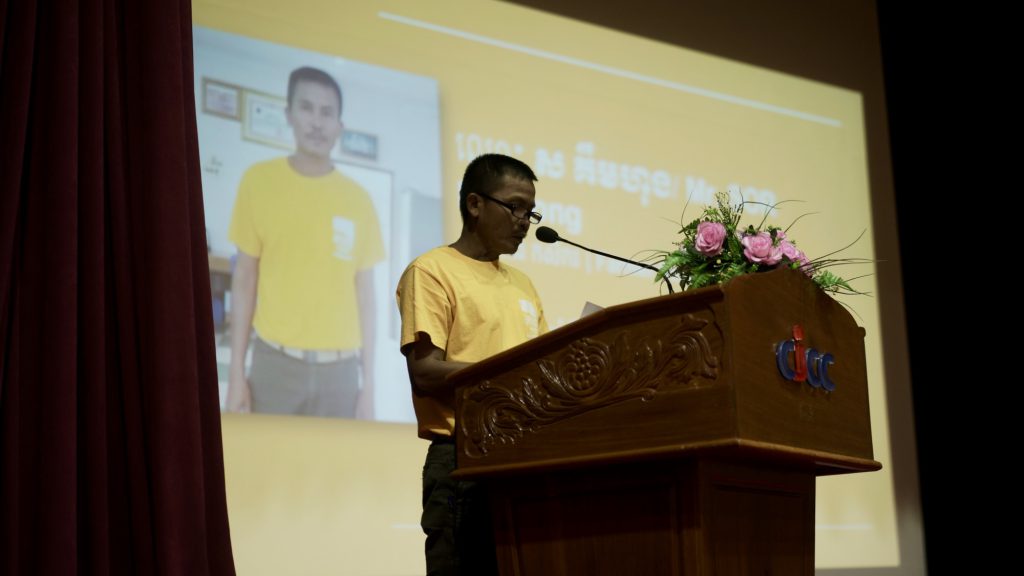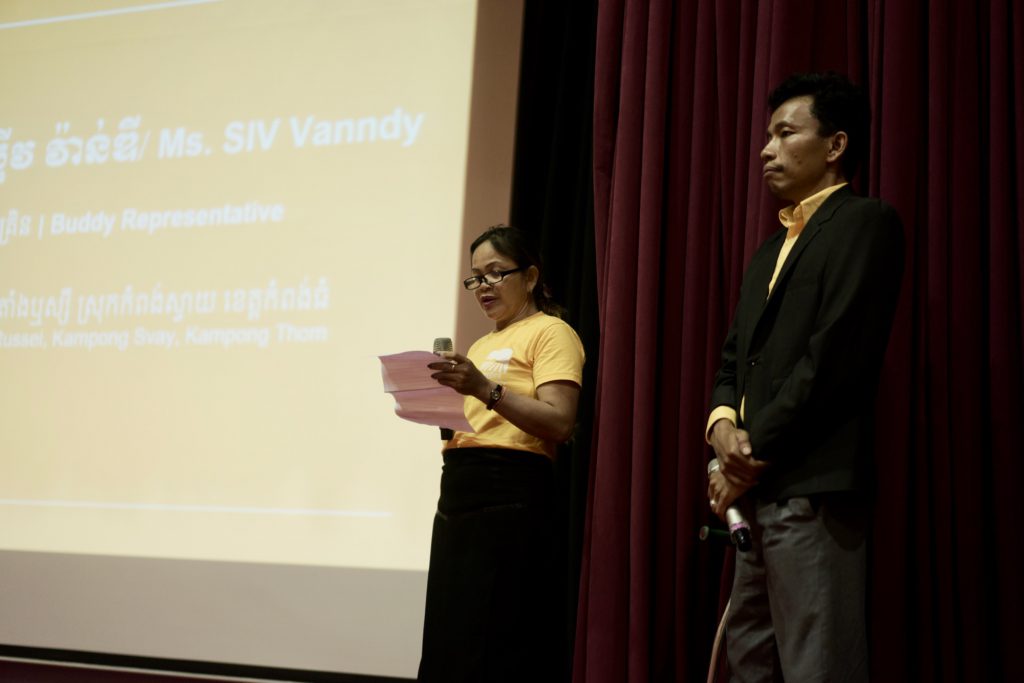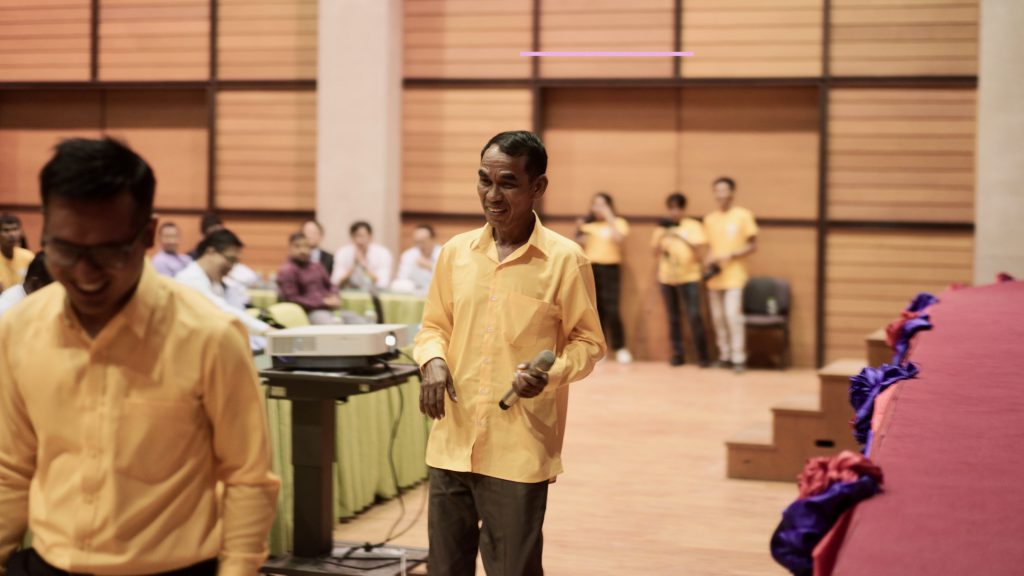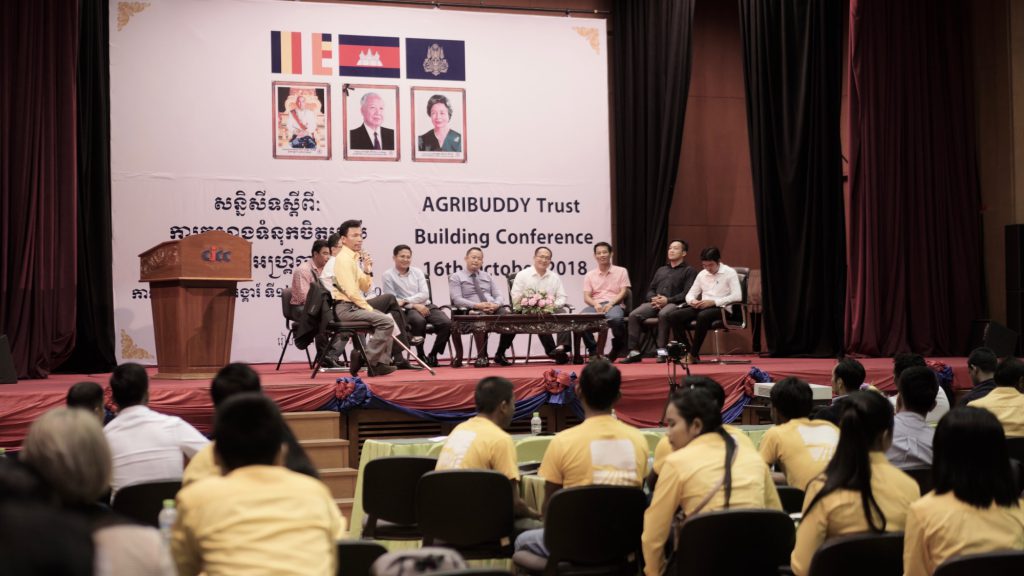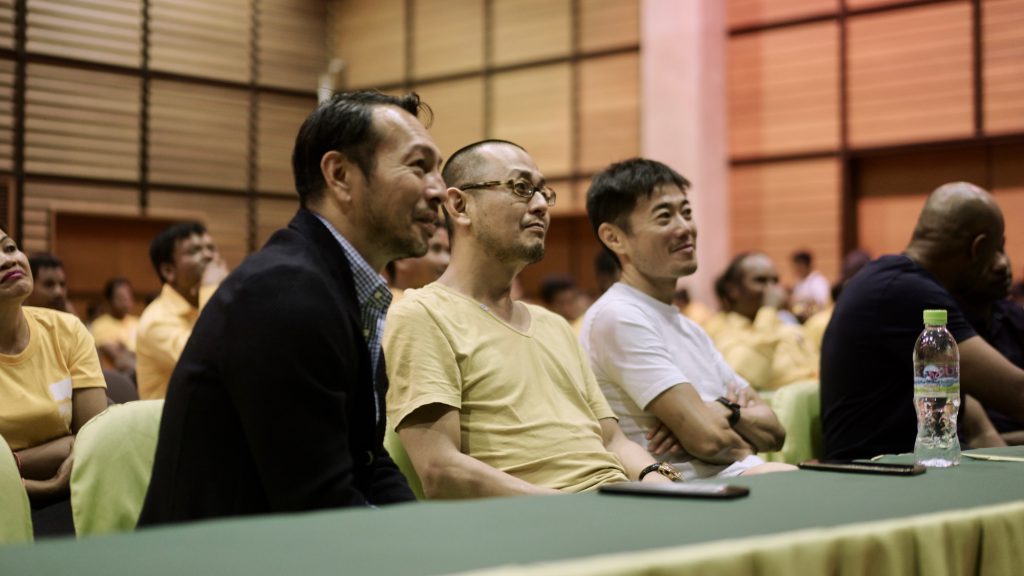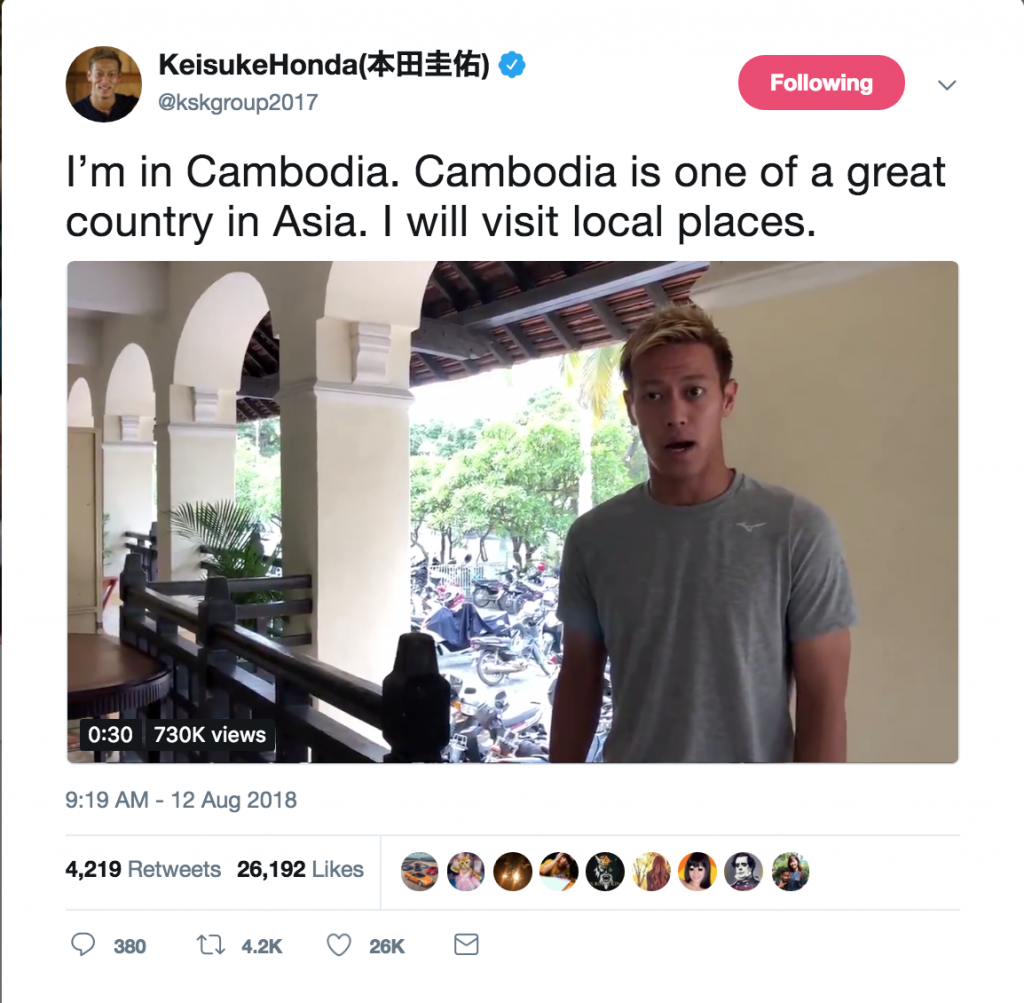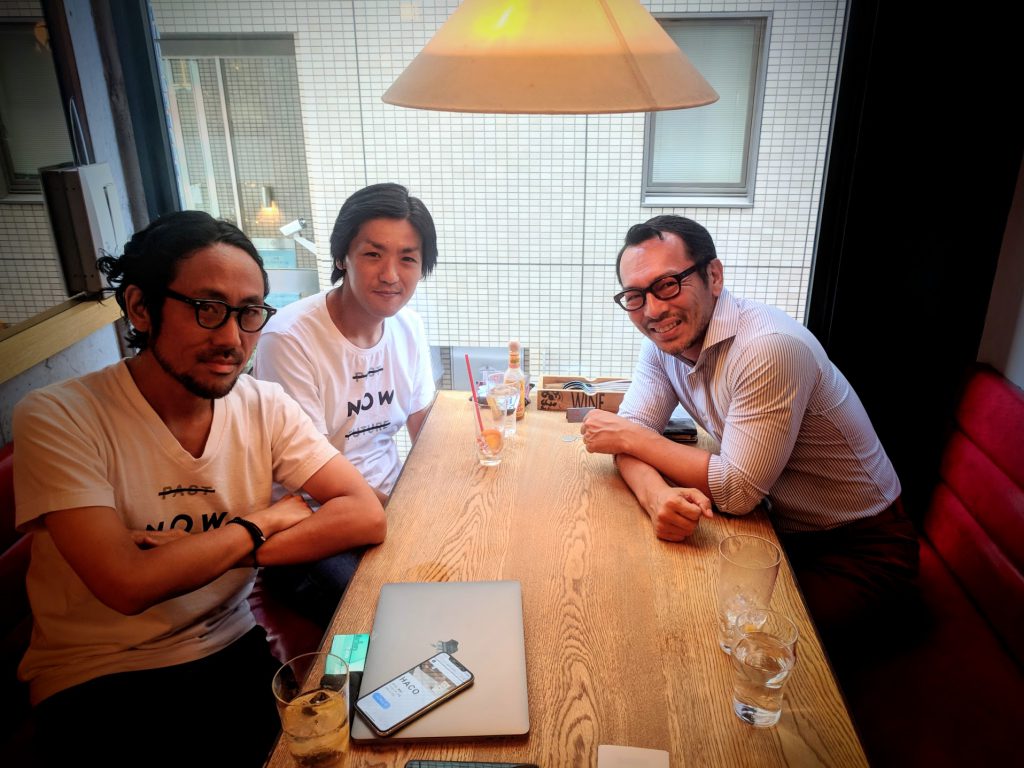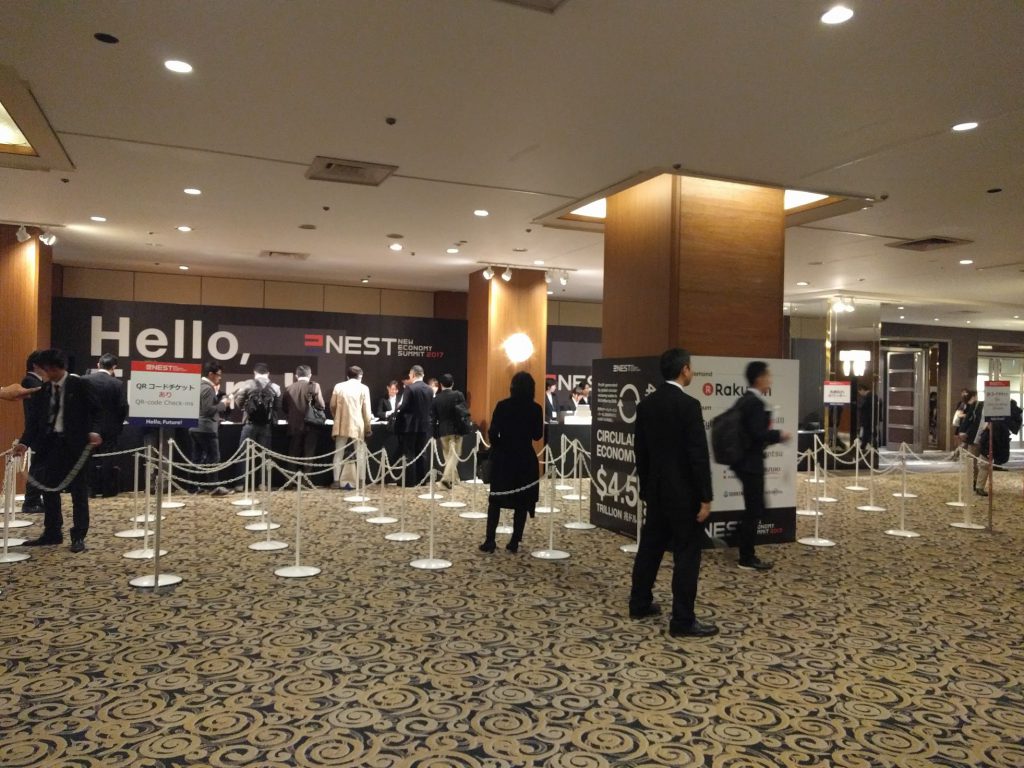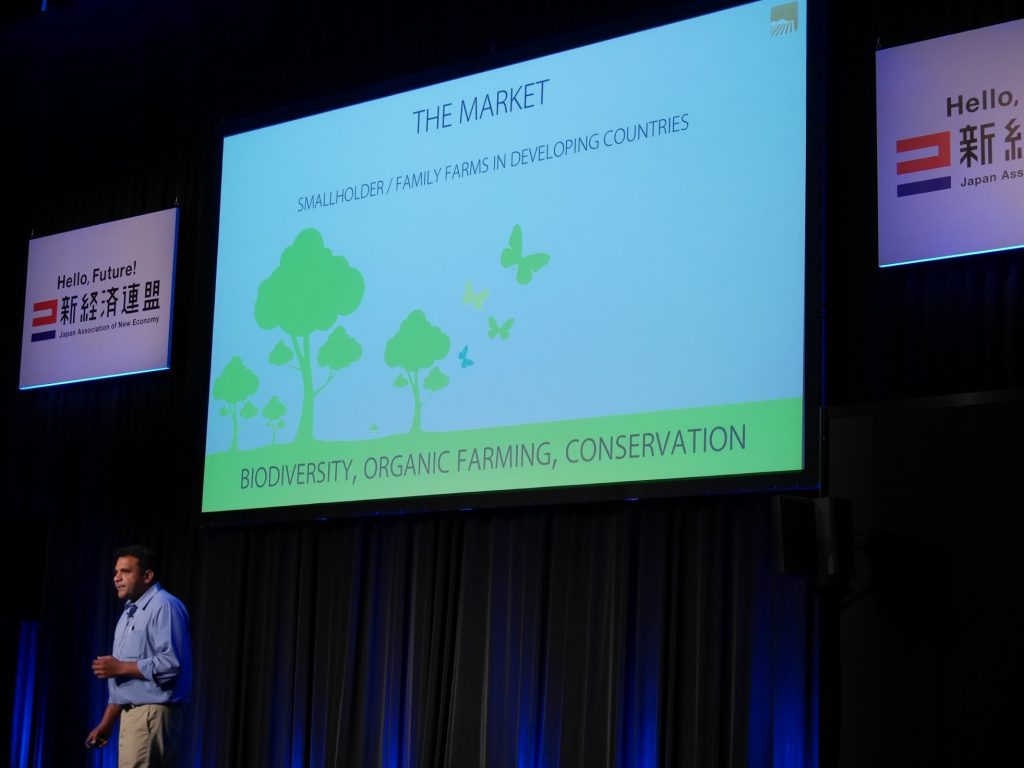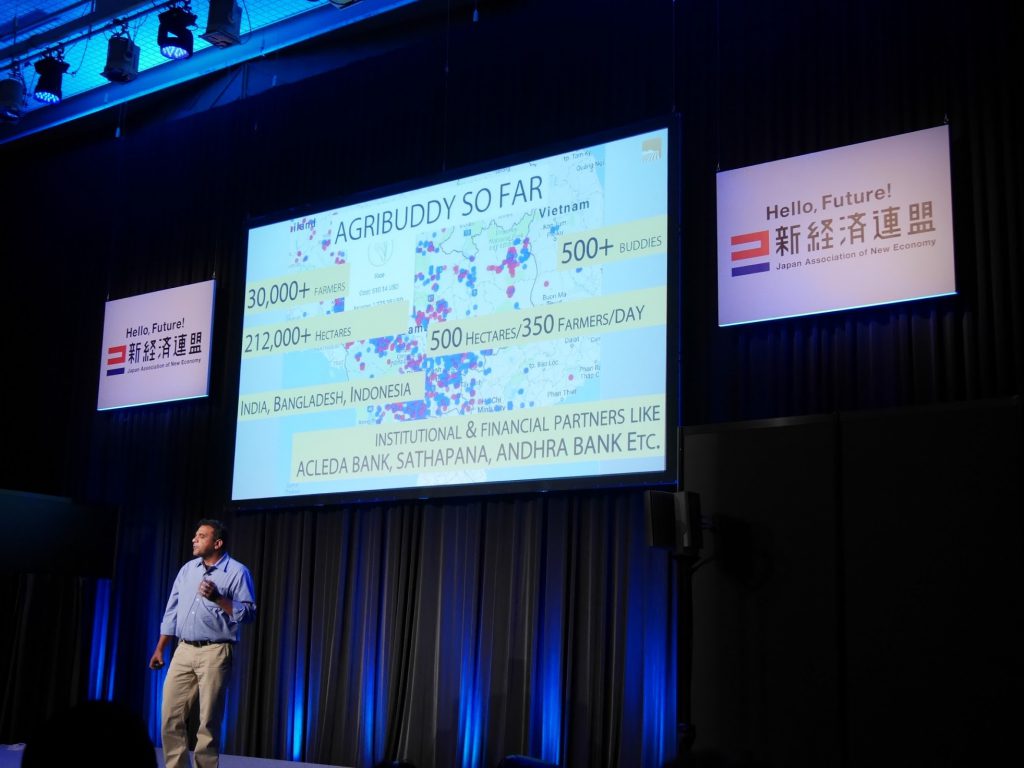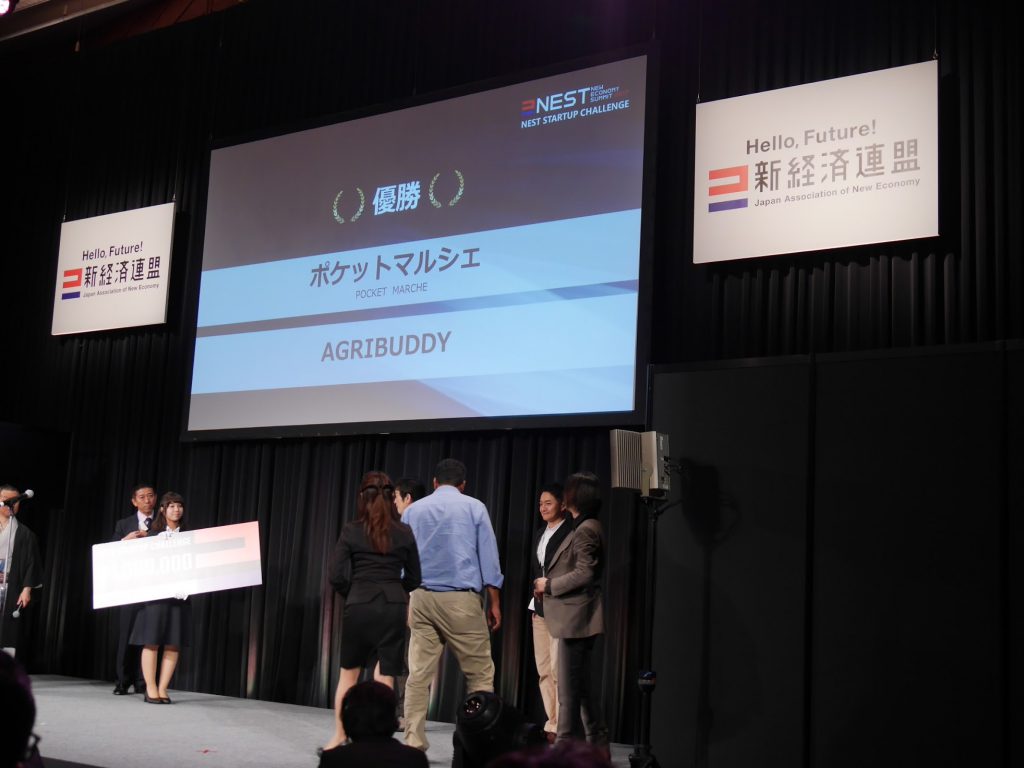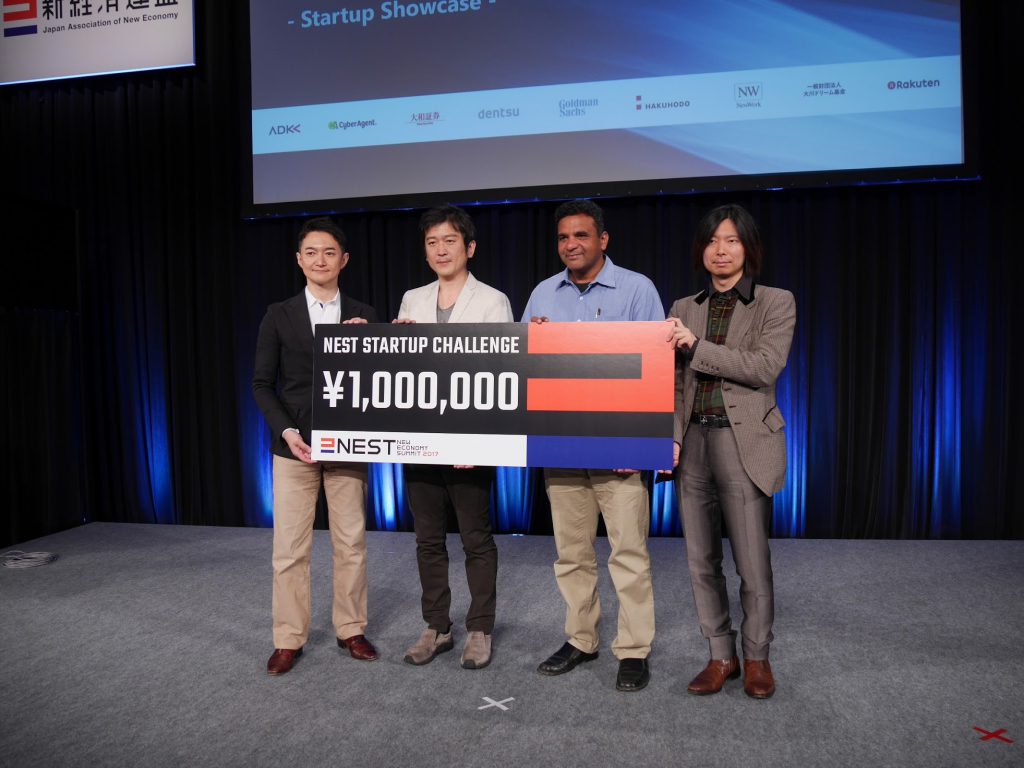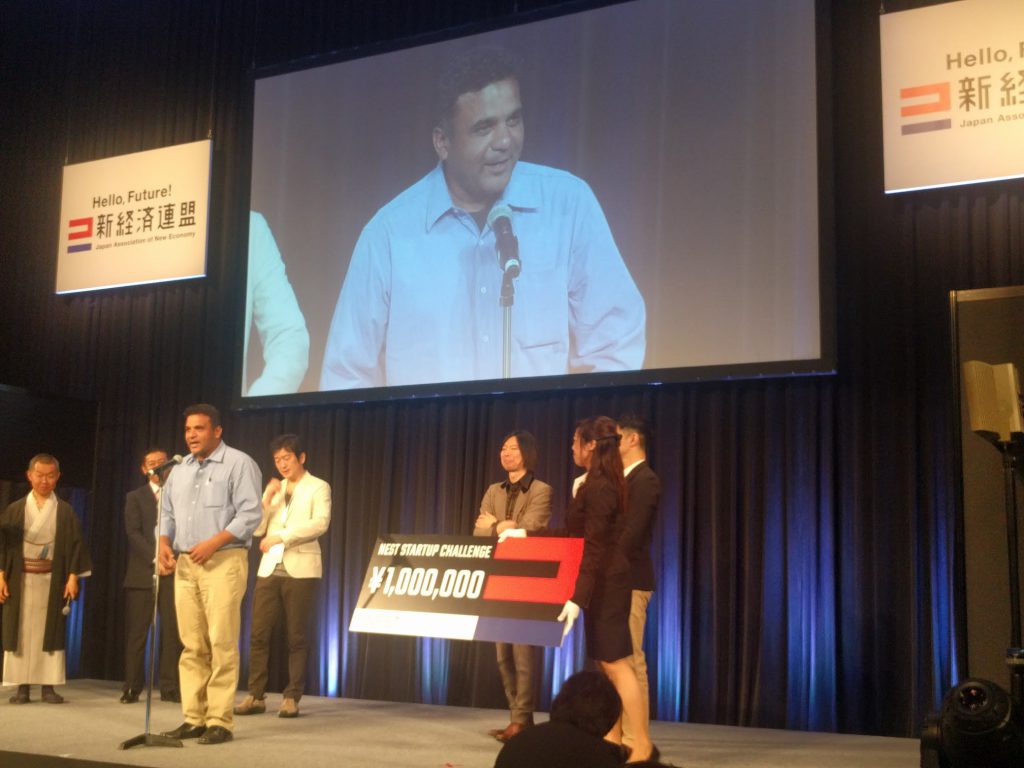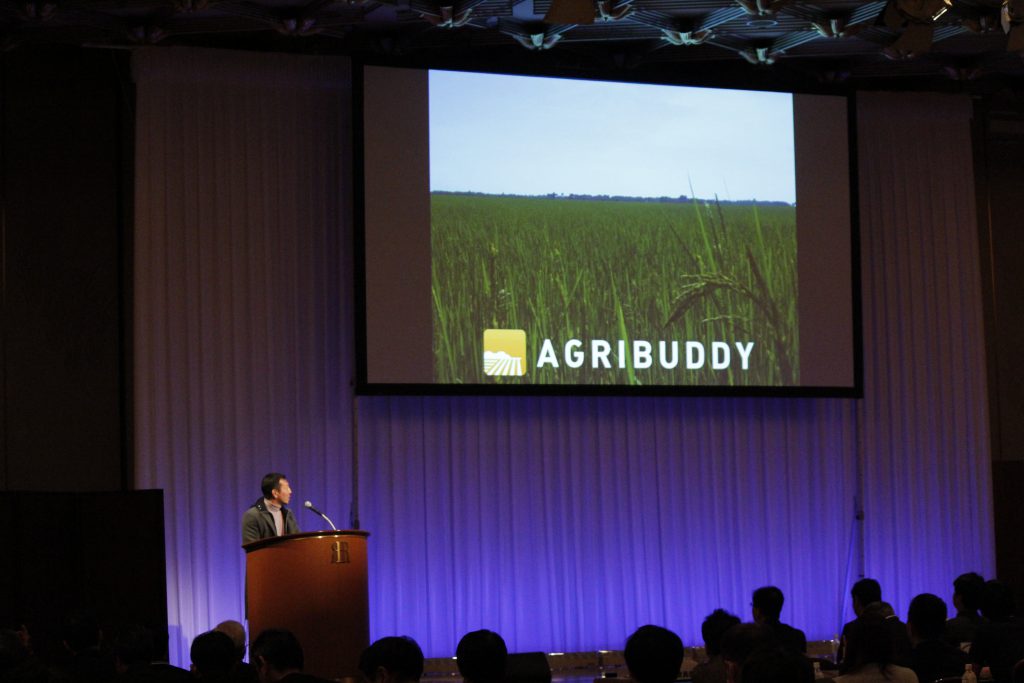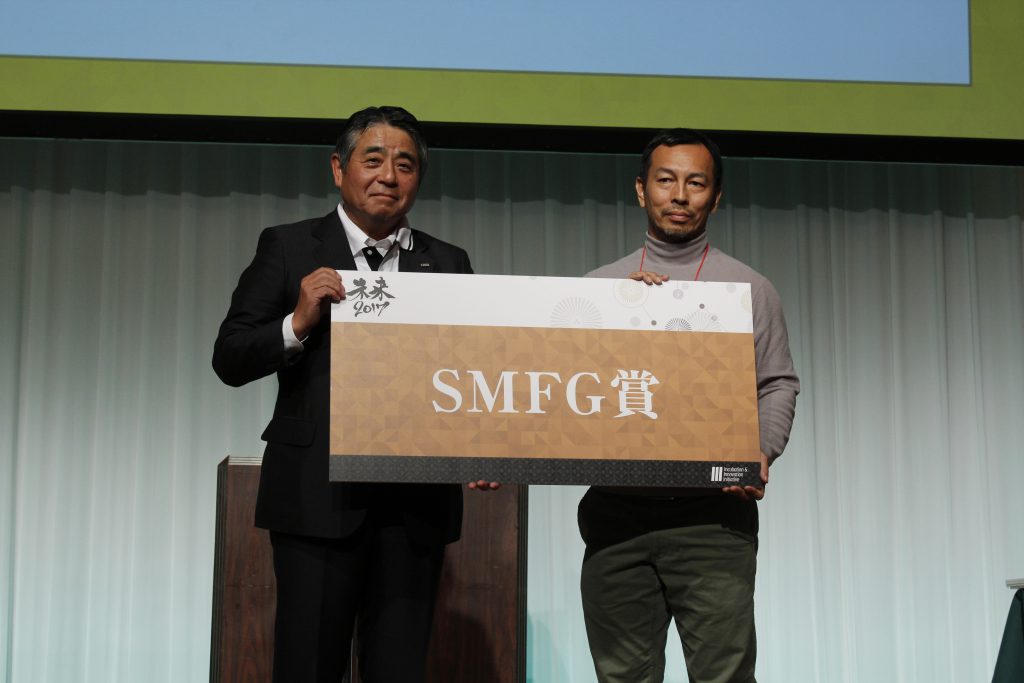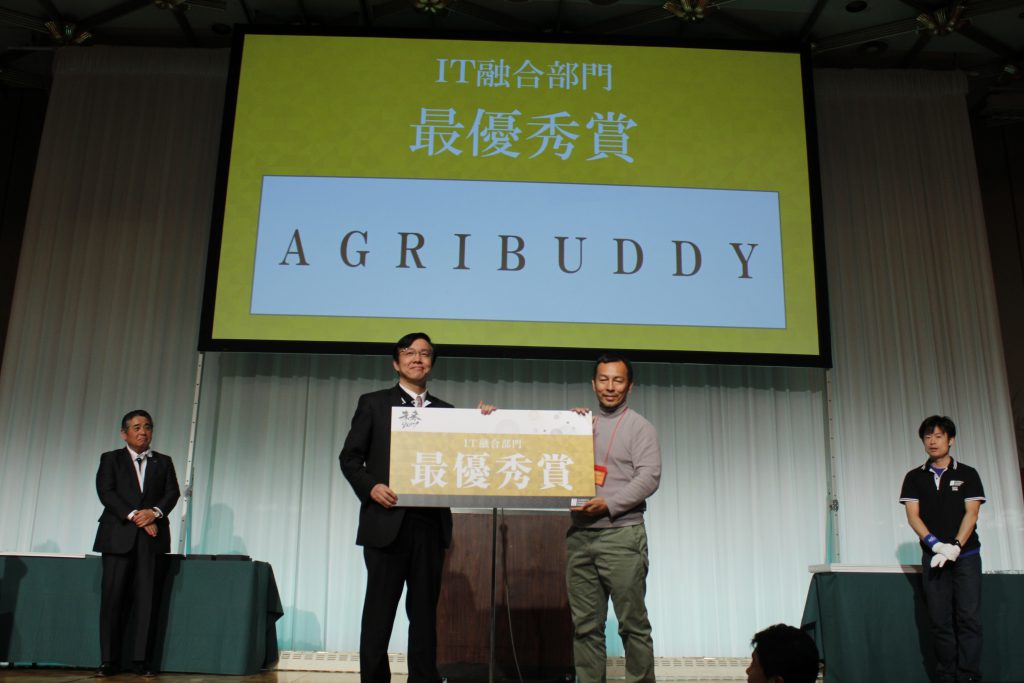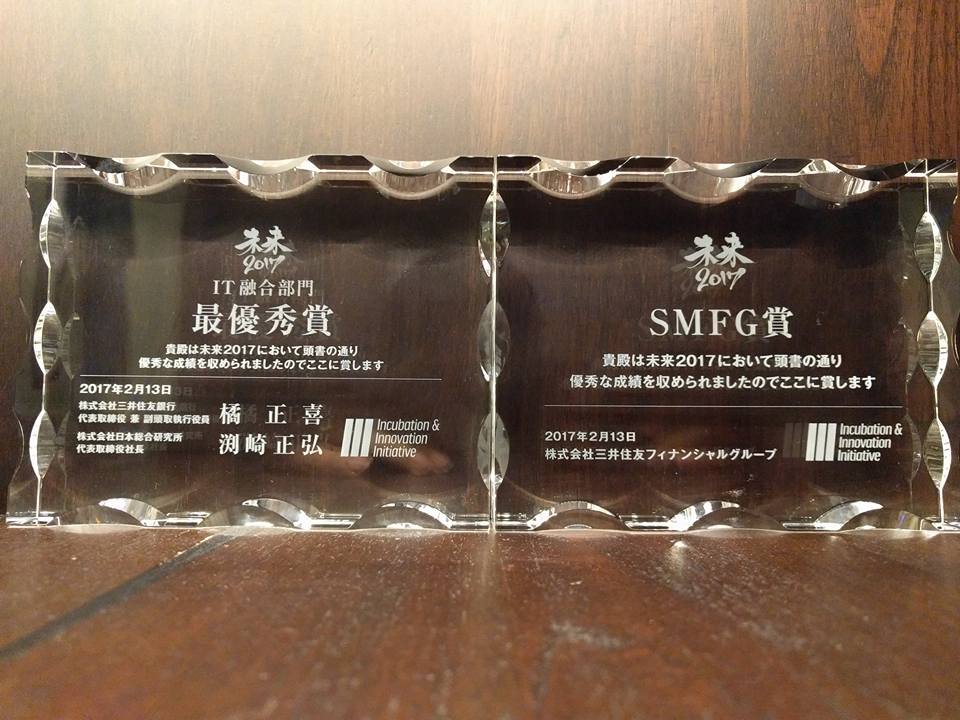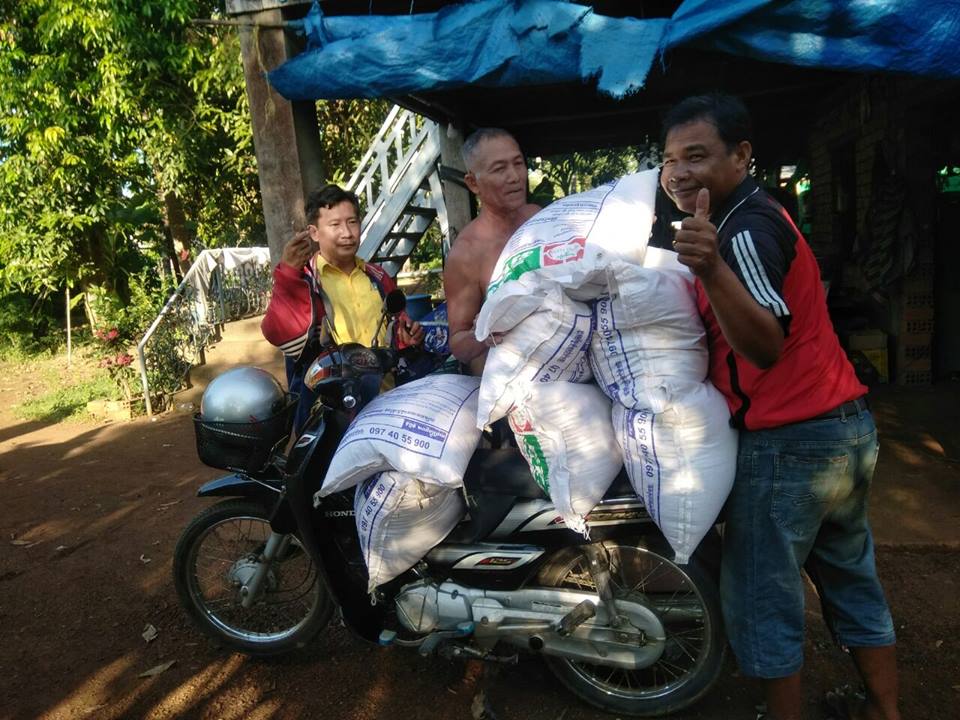
―Let me talk a bit about agriculture. Is there a general balance between productivity and cost?
Yes. After all, the reality of agriculture in Cambodia is that people do not spend money (invest) to increase productivity. It’s equivalent to not doing anything at all, so it’s not even agriculture in a real sense. For example, rice productivity in Cambodia is between 2.5t to 3t per hectare.
Vietnam has a rate of 6t and in Japan it is 8t per hectare. The average rate of 6t is not great comparing with global standards but the rates such as 2.5t is too low. The reason is that they don’t use proper seeds, they don’t use fertilizers and they don’t really take care of their fields and crops. If such facts were to be improved, it is not difficult to bring the productivity rate to 5t. Which is still lower than the average of our neighboring countries, but still it will double in productivity. And the cost to achieve such rates would not be double of the current costs. However, the idea of farmers in Cambodia is not to go ahead, if it is going to cost even one cent more than it is currently costing, this is simply because they do not have one more cent to spend.
―In India, is the service developed in the same way as Cambodia? Is there a unique difference?
The services being deployed are basically the same. India and Myanmar have a stronger impression of hierarchy in the villages. Cambodia’s hierarchy has been broken to pieces during the civil war. But, India and other countries continue to have generations of village chiefs for an example.
―In India, is mechanization in progress?
Mechanization has not progressed. For example, mechanization is more advanced in Cambodia than in India. India is still mostly cows cultivating the land and there are still very few tractors. Harvesters have been introduced for rice harvest in Cambodia and it is working quite well, but India still relies on manual work. I think that the reason is that there is a financing system progressing in Cambodia. However,,there is no competitive price for Cambodian crops and labor costs are not so cheap.
―You have various bases such as Hong Kong and India, but why are you mainly based in Phnom Penh, Cambodia? Can you also tell us about the outlook for the future?
I said that mechanization is more advanced in Cambodia, but India has advantages in insurance, and there is a system called Priority Lending, which is a system that a certain percentage of each bank’s loan portfolio should be lent to farmers, this has been introduced along with many policies. But the reality in India is that, such policies are not working properly. The reality is that it has advanced but has not reached all the way through to the end.
I think AGRIBUDDY’s work is to connect all the dots together and form a line, but Cambodia has no dots in the first place. There is nothing. The government does not have many programs for supporting rural farmers yet, and insurance products are custom made by us with Forte as local insurance company. I think that we will be able to take the essence of what we created in a country that has nothing, to other countries such as Myanmar or India.
As a business, Cambodia is still bigger than India. Various modifications have been made in Cambodia, and a system has been built, trial and error have been made, and the ones that I imagined in my head and the ones that we actually delivered are quite different. While adjusting such things, I will try to develop business in India without making the same mistakes. We are also planning to enter into Myanmar later this year.
I’m a foreigner and I can talk about many ideas, but I can’t really do anything on my own. I cannot talk to the farmers in the local language, nor can I lift their feelings. I just be able to go to meet them and smile. In other words, AGRIBUDDY cannot do anything without a local person who really believes and understands our concept of “We wish we could make a world like this”.
Our team in Cambodia is gradually coming together. This was not because I created the team, but they did. The same for India, and even if there are people who say, “I like it!” to my ideas, we can only make it happen if there are people who really form a team towards that goal. Under such circumstances, we finally found a person who will lead and build the team last year, India is finally at a stage where it has started to move. This will also be an issue when entering business in Myanmar. There are companies that will become partners, and there are people who are interested in investing in our business if we enter Myanmar. On the other hand, it is also required by farmers. However, It really would not work unless there is a passionate person who has the motivation to really change the rural life using the structure of AGRIBUDDY, a person who can actually act and lead. Nurturing the people and forming the teams will be the most important task.
(Interview and Photography Ryoji Kawahara / Ryo Amasawa)

